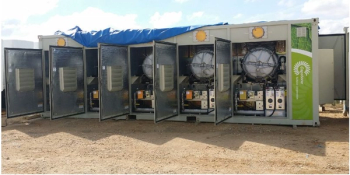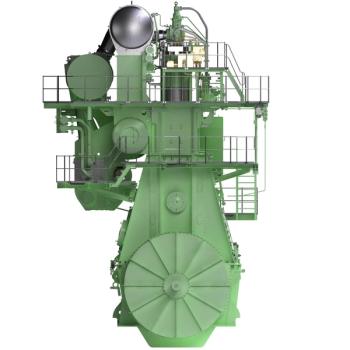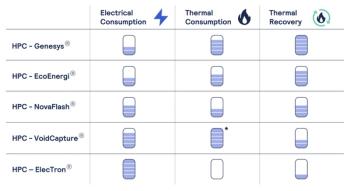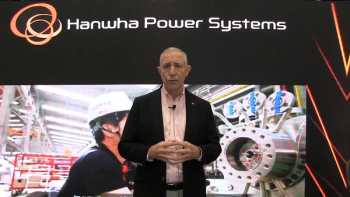
Myth Busters: Factory Testing: What Do I Really Need?
In most states within the United States there are so-called “Lemon Laws” that provide protection to buyers when they purchase automobiles and other large consumer articles. Most Lemon Laws assert that if a new vehicle has repeated defects within a “short time” after its purchase, the consumer is allowed to return the vehicle and receive full refund of the original price.
Unfortunately, there are no such laws in place for buyers of large industrial equipment, such as gas turbines or compressors. Often the only remedy the purchaser has if the equipment is not functioning properly is the manufacturer’s basic warranty clauses. (Prudent OEMs who value customer relationships will make sure their equipment will work properly in the factory and in the field.) Thus, for the purchaser’s protection, it is normal to test and inspect a machine in the factory prior to accepting title to the equipment.
A wide range of factory acceptance tests for gas turbines and compressors are offered by manufacturers or requested by end users. Most of these are based on requirements within API 616 (gas turbine), API 617 (compressors), ASME PTC 22 (gas turbines), and ASME PTC 10 (compressors), as well as ISO 2314 and ISO 5389.
Despite these standards, there is wide disagreement in the rotating machinery industry about what constitutes minimum factory test requirements. And little consistency exists between a manufacturer’s inhouse test standards and specifications, which can be based on capability, application- specific need and tradition.
Manufacturers perform different types and levels of factory testing based on what they have done for a long time and what seems to work. Test requirements are often based on the design of the gas turbine or compressor and the experience of the manufacturer with the particular design.
Industry standards such as API and ASME do not provide a lot of help as they include only a few basic and minimum required standard tests, and then allow the customer to select from a large number of optional tests without providing sufficient guidance as to which one is critical for what application, site condition, or circumstance. Thus, it seems appropriate to discuss some typical factory tests, their basic scope and relevance.
One should note that all factory tests should be accessible to the purchaser, and when necessary some can be specified as a hold-point. As this can impact the delivery schedule of the equipment, it is critically important that the manufacturer and purchaser coordinate the schedule for all factory tests and hold points prior to project start.
Factory tests provide some insurance against problems in the field. Since some non-standard tests, for example, a closed loop test or a string test, can carry significant additional cost and impact on delivery schedule, a risk-versus-cost analysis should be performed prior to selecting these. Unproven or prototype machinery designs may require particular scrutiny.
If these units are destined for sites that are difficult to access, one should consider additional testing requirements. Other aspects are the track record of a manufacturer and the quality assurance system. In general, rotating machinery factory tests can be divided into:
- Safety related, such as hydrostatic pressure tests, non-destructive examination of welds, gas release tests and material inspections
- Mechanical integrity, such as a 4-hour run test, string test, package test and coupling tests
- Performance related, such as compressor closed loop and gas turbine output and efficiency tests
- Noise-related tests, such as sound level measurement tests, sound pressure level tests and vibration tests.
Basic safety-related tests, such as hydrostatic pressure tests per ASME standards should always be performed. Similarly, nondestructive tests of metal welds using radiography for all pressure containing vessels are always recommended.
However, non-pressure containing vessels or non-structurally critical part welds may not all need to be inspected individually. In many cases, these tests are part of an overall quality system, and documentation is available which verifies the integrity of the product.
Other safety related tests, such as enclosure gas release tests, depend on the application. For an unmanned installation with no nearby personnel (or neighbors), these tests are not always necessary, as long as maintenance personnel perform proper log-out and tag-out practices.
Mechanical integrity tests demonstrate the basic functioning of the machine and are useful to identify gross fabrication, assembly or design fault prior to shipping of the machine. The API 616 four-hour, no-load mechanical run test is a good example.
A mechanical integrity test provides information on proper operation and vibration, but does not usually include performance information. This test is valuable for a complex or high-risk unit, since it demonstrates the functioning of the unit over a wide speed range.
However, for standard designs and, if an engine performance test is already performed, it may add little value. For instance, running an engine for four hours after it has already passed the full-load factory performance test does not provide additional insight.
Some tests, such as the package string test, require the mating, commissioning and no-load testing of the driven equipment and the drivers at the factory, which can be expensive and delay delivery. Depending on the application, this test could be performed in the field.
However, for high-risk applications or applications where site commissioning is complex and where the package is nonstandard, a factory package string test can reduce time and risk of offshore installation and startup activities, and is appropriate. For very high risk application cases, one should also consider combining the package string test with a closed-loop compressor test to reduce risk.
Part two of this article will be featured
Written by: Klaus Brun, the Machinery Program Director at Southwest Research Institute in San Antonio, Texas. He is also the past Chair of the Board of Directors of the ASME International Gas Turbine Institute and the IGTI Oil & Gas applications committee.
Written by: Rainer Kurz, the Manager for Systems Analysis at Solar Turbines Incorporated in San Diego, CA. He is an ASME Fellow since 2003 and the chair of the IGTI Oil and Gas Applications Committee.
Newsletter
Power your knowledge with the latest in turbine technology, engineering advances, and energy solutions—subscribe to Turbomachinery International today.




